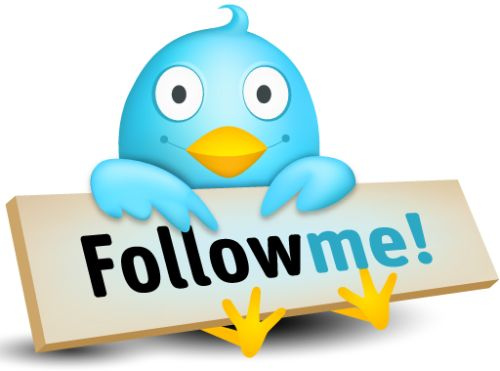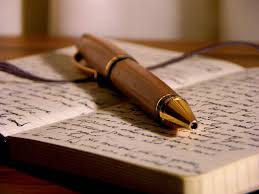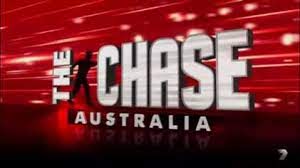It was ten years today that I sat in a room at Charles Sturt Uni in Bathurst as part of my MA in communications and was introduced to Twitter.
I distinctly recall poo-pooing the idea of getting on the platform – “it’s just where celebrities go and show off” was my thinking.
But I got on Twitter, and it changed much. I’ve made some fantastic friends and connections over the years. It’s provided me with a platform to build my own professional and personal brand, and because of this, I’ve had the pleasure of meeting and learning from some amazing people.
That said, Twitter, the tone of it, has changed – or maybe along with it, as life has changed, my need for Twitter has changed. Either way, a cursory glance of my interactions in the past year shows that I’m less proactively active on it; and in fact, I am more likely as my career has evolved, to post on LinkedIn than Twitter.
My ten lessons from Twitter learned over the last ten years
- At its best, Twitter is a great thanking vehicle (with thanks to Brenden Wood for that gem): It’s easy – and free. A metaphoric pat on the back, a quiet ‘well done’. Being positive isn’t hard; it just means you’re being positive. Remember – people do business with people. Why not be polite and considerate and take the time to take the time.
- When used well, it’s a great shared community: As a fan of The Chase Australia, for example, or dare I happily admit, some of the reality TV shows that abound I’ve connected with others who share my interests. (Here’s looking at you James Weir for your delightfully ironic, incisive surgical analysis of The Bachelor, et al).
- It’s about people: I’ve met some fantastic folks through Twitter , and because it, Master G has a bunch of books signed by some of my favourite authors. One example: Before Master G was born, the selfless Peter Lalor signed a book for Master G he’d written on Ron Barassi (and had Ron himself sign it – wow). At the Sheffield Shield final earlier this year, Peter was there, and I introduced my son to him. Master G may not have known Peter’s writing feats (yet) but on that day Master G met a kind, humble guy who shook his hand. Day made.
There are some lovely, wonderful people on Twitter – some real gems – and many, many I’ve had the joy of meeting. And, because of Twitter, for instance, I’ve met everyone from Test cricketers, authors of my favourite books and podcasts to cricket and rugby fans, and folks we see TV and listen to on the radio. I’ve made some wonderful friends over the years, few of whom I’d have probably connected with had it not been for social media.
People are what makes Twitter fantastic. - By its nature, the sharing of information is immediate – talkback radio meets a global audience: Curate your own lists as I have for years, and it’s a wonderful immediate news source – as long as you trust the source.
- It’s too easy to be critical: This isn’t a critique of Twitter, but of people on it. Us. Having been brought up in politics (the lesson from a minister I worked for of ‘don’t make me look stupid on the front page of The Australian’ still looms large, and never (…!) having published anything I’d not want repeated, it staggers me that people type before they think. I don’t get it – why? And it happens all the time. Manners go, and it’s a free-for-all. What that says about the Twitter polity at times is very little.
- We are who we follow: My interests – politics, history, cricket, rugby and the media for example, are all reflected in who and what I follow. If you come to Twitter (or any platform) predisposed to a certain view, then I’m not sure if being on social media either opens one’s eyes or narrows one’s focus. The dogma on topics from politics to the Marsh brothers in the Australian cricket team, to (my fav – although it’s on Facebook – should you take a negative offer on The Chase quiz show) is insightful at times as it is scary.
- The lines between personal and professional have blurred: I was angsty for a long time in using my own Twitter account for work – I do in this role because what I tweet or say is positive and supportive – and not too frequent. In past roles where it’s been more media-heavy, I’ve used the work account only. But who am I on Twitter? An industry association CEO, or a dorky Dad whose son says he can’t dance? Either way, nothing I post goes near a line that I would want my board to raise an eyebrow at. Tweets are media fodder and those who get into strife have but one person to blame for it: Themselves.
- You can by-pass the media to get your message out – but it comes with a caveat: In a job ages ago, our association was hammered on the front page of a national newspaper. Using our Twitter account, I pushed back on the issue proactively online, and got radio coverage because a producer had seen the tweet from us. Win. But – when to know when to tweet and not when to tweet? The tone, to whom, when? Not necessarily easy – but – organisations now are literally their own ‘newsroom’ – and content boundaries almost limitless. Twitter, I’ve found, is great for catching the eye of media and other influential stakeholders. And that is issue management gold in being able to get your unfiltered message out to those who you really want to see it.
- It’s what you make it: Be deliberate in your intent with it (this applies to any platform really) and let your needs evolve, and you evolve with it. But know what you’re doing and who you’re aiming to connect with on Twitter – and why.
- The final word from my late grandmother: A lesson for us all:
Say please, say thank you, and never chew with your mouth open.
So thanks, Twitter – and to those who make me laugh, think, and at times grimace – thank you.
See you at the cricket.


